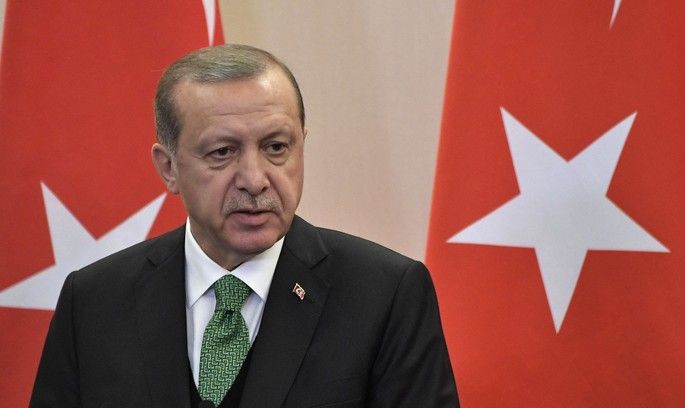In a bid to unseat Turkey’s incumbent President Recep Tayyip Erdogan, Kemal Kilicdaroglu, the main opposition candidate in the upcoming presidential election, has undertaken a novel approach. His campaign strategy, characterized by an understated tone and candid, middle-class home settings, has been noticeably different from the traditional political grandstanding typically associated with presidential races.
Kilicdaroglu’s campaign videos, colloquially termed as his “kitchen diaries,” have been frequently posted on Twitter. Seated comfortably with a traditional Turkish teacup, Kilicdaroglu discusses his key campaign promises, potential coalition partners, and sometimes just shares a candid moment with his followers. This approach stands in stark contrast to the elitist image once associated with him and his party, the Republican People’s Party (CHP).
Analysts indicate that this image transformation is part of a strategy to appeal to Turkey’s middle class and economically distressed citizens, groups that have traditionally been championed by Erdogan. The incumbent president, who has been in power for over two decades, is increasingly viewed as responsible for the country’s economic turmoil, with inflation rates reaching a staggering 43% in April, down from a peak of 85% last October.
Kilicdaroglu has seized upon these economic woes as a cornerstone of his campaign. He has promised to fix Turkey’s faltering economy, often illustrating the soaring prices of everyday items like bread, eggs, and yogurt in his kitchen video series. He has also directly linked Turkey’s economic distress to Erdogan, saying, “Today, if you are poorer than yesterday, the only reason is Erdogan.”
Gulfem Saydan Sanver, a political communication expert associated with the CHP, indicates that the kitchen has become a symbol of Kilicdaroglu’s humility and his connection to the everyday struggles of ordinary Turkish citizens. She argues that he is contrasting himself with Erdogan, whom he portrays as disconnected from the lower-income families’ problems.
The use of Twitter as a primary medium for reaching out to the electorate reflects the opposition’s increased reliance on social media. This is largely due to the majority of mainstream media outlets being controlled by government loyalists.
When Kilicdaroglu took the reins of the CHP in 2010, he grappled with an image crisis. The party was viewed as overly secular, nationalist, and out of touch with the working class. Erdogan’s administration took advantage of this image, using the narrative of “common people versus the elite” to undermine the opposition. However, the CHP has since undergone a transformation, creating a coalition of diverse political actors, appealing to the Kurdish electorate, and even attracting members who defected from Erdogan’s AK Party.
Kilicdaroglu’s move to reveal more of his personal life through home videos represents a notable change in his political strategy. He has understood the merging of the personal with the political, particularly when leading a movement.
Nevertheless, his mild-mannered nature has drawn criticism. Some critics, like Sanver, suggest that his “kitchen diaries” might paint him as too gentle to handle Turkey’s more challenging foreign policy matters, such as relations with Russian President Vladimir Putin and the United States. Erdogan’s aptitude for utilizing personal relationships and demonstrating effective leadership, shown when he mediated a grain export agreement between Ukraine and Russia, sets a high standard for Kilicdaroglu’s perceived strength.
To counter these apprehensions, Kilicdaroglu has begun giving speeches from his office, trying to portray a more serious image and highlight that his leadership style differs from Erdogan’s.
Kilicdaroglu has taken proactive steps to defuse possible political tensions. In a video released last month, he openly acknowledged his membership in the Alevi sect, a minority religious group in the predominantly Sunni Muslim country. With over 36 million views, this video acted as a defensive measure against any possible political manipulation of his religious beliefs.
Kilicdaroglu has stated unequivocally that his campaign is about accomplishments rather than identities. “We will no longer focus on identities; instead, we will discuss accomplishments,” he declared in his video. “We won’t dwell on divisions or disparities; we will concentrate on what we share and our collective aspirations. Are you ready to join this campaign for change?”
Kilicdaroglu’s strategy, which combines a focus on economic issues, an embrace of pluralism, and an innovative communication strategy, offers a compelling alternative to Erdogan’s political narrative. The success of his campaign will depend on whether he can convince voters that he has the economic acumen and leadership strength to steer Turkey towards a brighter future.
As the election draws closer, it is clear that Kilicdaroglu is not just running a campaign but also redefining the image of his party and himself. His ‘kitchen diaries’ have served as a powerful tool in this transformation, humanizing him and making his political messaging accessible to everyday Turks. Whether or not his approach will secure him the presidency, it is undeniable that Kilicdaroglu has left a distinct imprint on the Turkish political landscape.
The Turkish presidential election is not just a contest of political might but also of narratives and visions. As the candidates vie for the highest office, their contrasting approaches reflect the changing dynamics of Turkish politics. From the kitchen to the office, Kilicdaroglu’s campaign underlines the power of direct and relatable political communication, offering a new playbook for future political contenders. In the end, it will be up to the Turkish voters to decide which vision they believe in and which leader they trust to steer their nation forward.
